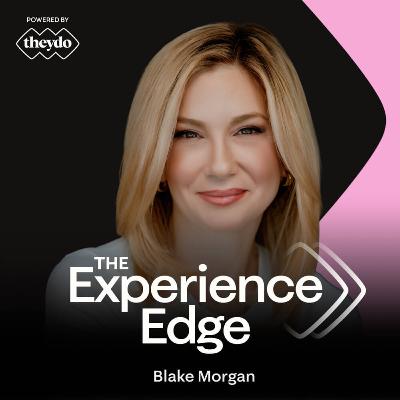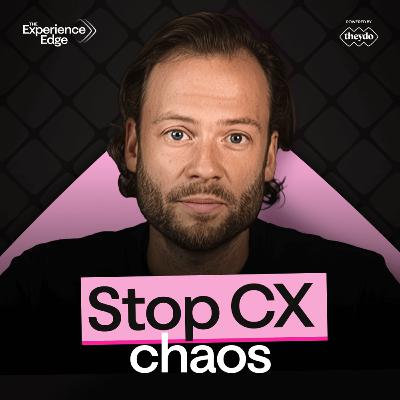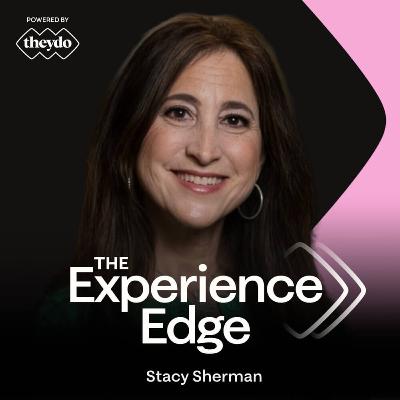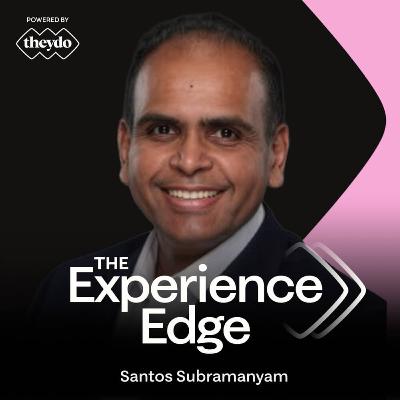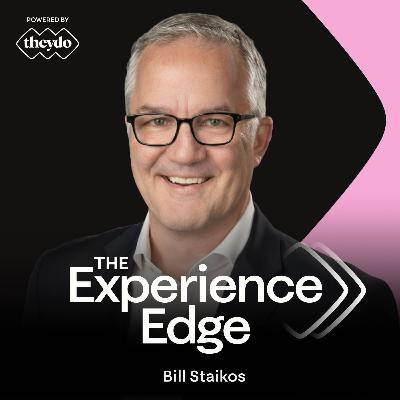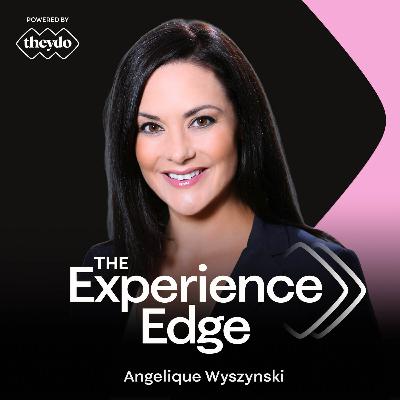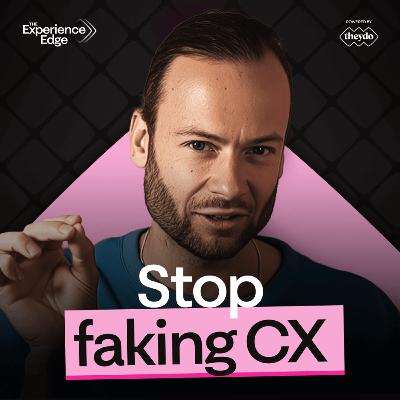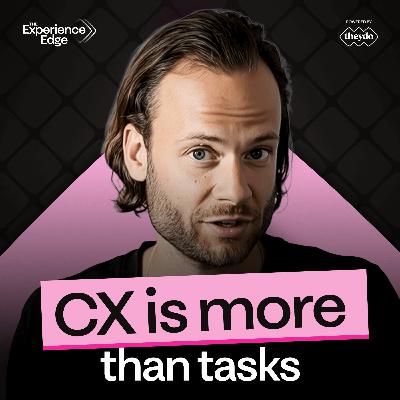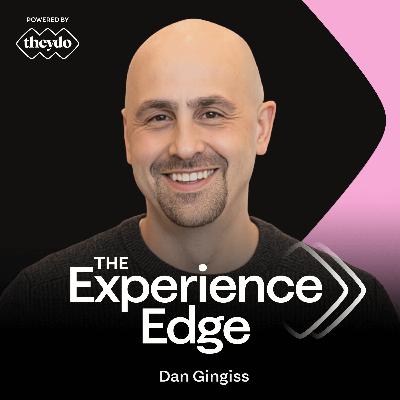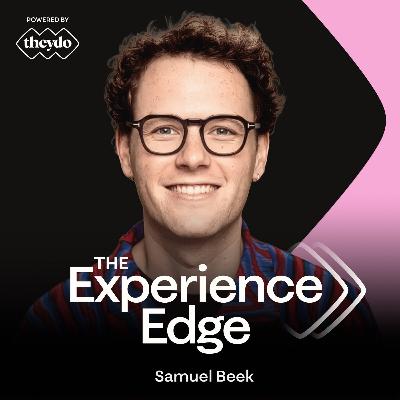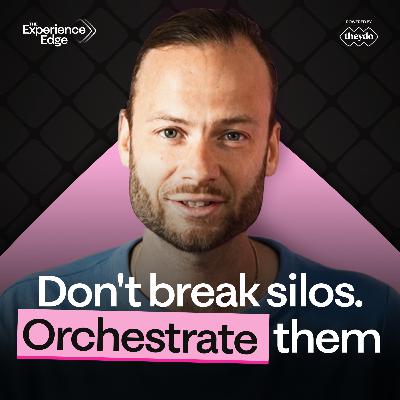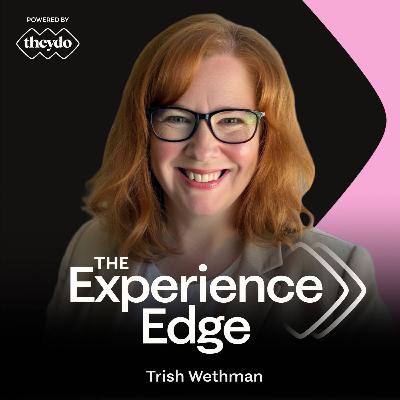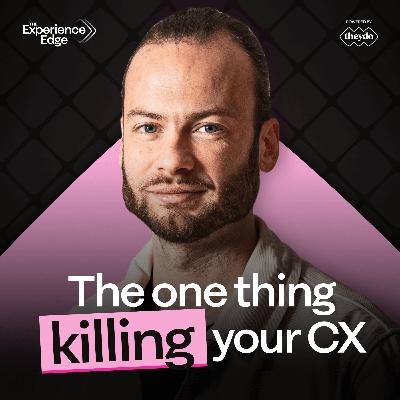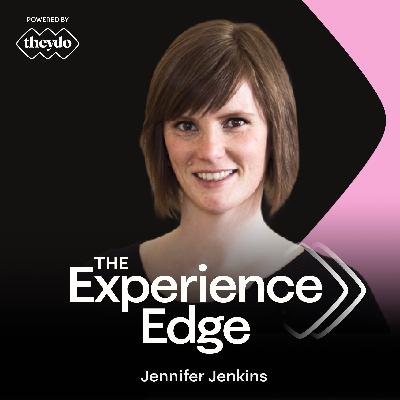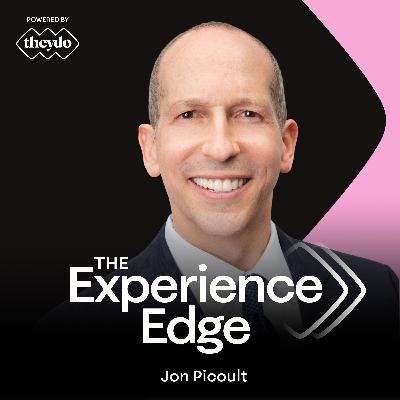Ep. 42 - Customer experience is everyone’s job - Blake Morgan
Description
In this episode of The Experience Edge, Jochem van der Veer sits down with Blake Morgan, customer experience (CX) futurist and author, to explore what’s stayed true in CX over the past decade, where business leaders often fall short, and how to build a customer-centric culture in a modern, AI-driven world. Blake highlights that while tools and channels have evolved (especially AI), fundamental human needs, being seen, heard, and having problems solved, remain the same. She emphasizes the importance of trust, long-term thinking, and tying CX efforts directly to business outcomes like revenue and customer retention. Throughout, she offers practical guidance on how organizations, especially in the “messy middle” of their structure, can embed CX mindsets, empower frontline and middle managers, link performance metrics to customer value, and begin with low-friction, high-impact actions.
Guest Bio
Blake Morgan is a leading voice in customer experience, known for her role as a CX futurist, author, and speaker. She is the author of The 8 Laws of Customer‑Focused Leadership: New Rules for Building a Business Around Today’s Customer, a framework rooted in research and interviews with top business leaders for making CX central to strategy. Blake is also the founder of the Modern Customer Podcast, an instructor on LinkedIn Learning, and frequently contributes to outlets like Forbes and Harvard Business Review. She helps organizations build trust, elevate customer‑centric culture, and align CX practices with revenue growth.
Takeaways
- Here are 10–12 key insights from the episode:
- Humanity still matters. Despite advances in technology and AI, customers still crave human interaction, being greeted, being seen, empathy. Blake Morgan
- Trust is a bank. Every customer interaction is a deposit or withdrawal from trust. Hidden fees, lack of transparency, or making it hard to reach a human cost trust heavily.
- Short‑term gains vs long‑term relationships. Boards often emphasize short‑term metrics, but Blake argues for balancing immediate profit with sustained customer loyalty and relationship building.
- Metrics beyond satisfaction. While customer satisfaction, Net Promoter Score, etc., are important, understanding revenue behavior (repeat purchases, referrals, churn etc.) gives stronger causal insight into CX impact.
- Start small, fix what's broken. Even in large enterprises, you can begin with friction points that frontline employees and customers call out and deliver improvements that matter.
- Middle managers are pivotal. They often get overlooked but are essential to bridging strategy and execution, coaching teams, and embedding the CX mindset across departments.
- Think of CX as everyone’s responsibility. It shouldn't live in a silo (a department) but be woven into every function, product, marketing, support, HR, operations.
- Employee experience mirrors CX. Engaged, empowered employees who understand purpose and feel supported deliver much stronger customer experience.
- AI as an enabler, not a replacement. Brands like Sephora are using AI to gather richer feedback and personalize content, but only when used thoughtfully, not to replace human connection.
- Law of the mindset is foundational. From Blake’s “8 Laws” framework, creating a customer experience mindset is the starting point, especially in an environment of rapid change. Blake Morgan
Chapters
00:00 Introduction & What’s Still True in CX
02:30 Underestimated Shifts & Trust in CX
07:40 Boardroom Perspective & Balancing Short‑ vs Long‑Term
11:50 Culture, Performance Metrics & CX Mindset
17:20 Employee Experience & Manager Role
37:40 AI’s Role: Enhancing or Undermining Emotional Intelligence
41:12 Starting Small & Building Momentum
44:16 The “Law” to Focus on Now & Closing Thoughts
Follow Blake Morgan on LinkedIn
Follow Jochem van der Veer on LinkedIn

